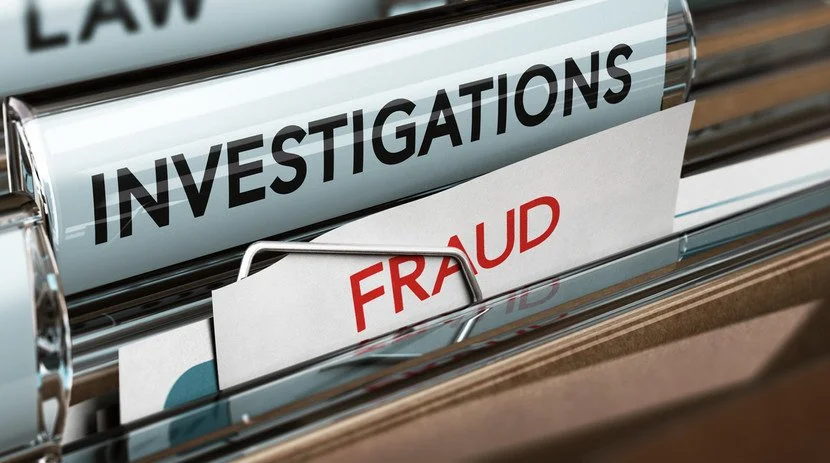How do HMRC Investigate Tax Evasion
Tax evasion is a serious offense that can have significant legal and financial consequences. The United Kingdom has strict tax laws in place to ensure that individuals and businesses pay their fair share of taxes. Her Majesty's Revenue and Customs (HMRC) is the government agency responsible for enforcing these tax laws and investigating instances of tax evasion. In this article, Cheylesmore Accountants will provide valuable insights into how HMRC investigates tax evasion, shedding light on the processes involved, how cases are identified, and what individuals and businesses should be aware of.
Do HMRC Investigate All Reports of Tax Evasion?
HMRC takes tax evasion reports seriously, but not all reports lead to investigations. The agency has limited resources and must prioritise cases based on various factors, including the potential amount of tax involved, the complexity of the case, and the available evidence. HMRC assesses each report and decides whether to launch an investigation. This means that not all reported cases of tax evasion will result in an HMRC inquiry.
How Do HMRC Find Out About Tax Evasion?
HMRC employs various methods to identify potential cases of tax evasion:
Data Matching: HMRC uses sophisticated data analysis techniques to compare information from different sources. They cross-reference data from tax returns, financial institutions, and other sources to identify discrepancies or irregularities that may indicate tax evasion.
Whistleblower Reports: HMRC encourages individuals with knowledge of tax evasion to report it through their whistleblower program. These reports are taken seriously and can trigger investigations.
Information Sharing: HMRC collaborates with other government agencies, both within the UK and internationally, to access information that may be relevant to tax evasion investigations.
Random Audits: HMRC conducts random audits to deter tax evasion and uncover potential cases. These audits are not solely based on suspicion but are part of routine compliance efforts.
How Will I Know if HMRC Is Investigating Me?
If HMRC decides to investigate your tax affairs, you will typically receive a formal notice informing you of the investigation. This notice will outline the specific aspects of your tax affairs under scrutiny and the reasons for the investigation. It's essential to act promptly if you receive such a notice.
Once you're aware of an ongoing investigation, it's crucial to seek professional advice from an accountancy firm like Cheylesmore Accountants immediately. Experienced accountants can help you navigate the process, ensure compliance, and work to resolve any issues that may have triggered the investigation.
What Are the Odds of an HMRC Investigation?
The likelihood of an HMRC investigation varies from case to case and depends on several factors. While it's challenging to provide a precise probability, certain factors can increase the odds of being investigated:
High Income or Wealth: Individuals and businesses with high incomes or significant assets are often subject to closer scrutiny by HMRC.
Complex Tax Arrangements: If your tax affairs involve intricate structures or arrangements, they may attract HMRC's attention.
Previous Non-Compliance: A history of late or incorrect tax filings, as well as previous investigations or penalties, may increase the likelihood of future investigations.
Industry-Specific Risks: Some industries are more prone to tax evasion, leading HMRC to focus its efforts on them.
Whistleblower Reports: Reports from whistleblowers can trigger investigations even in cases where HMRC may not have otherwise been aware of potential tax evasion.
Understanding how HMRC investigates tax evasion is essential for individuals and businesses to stay compliant with tax laws. While not all reports of tax evasion lead to investigations, HMRC employs a range of methods to identify and address cases of non-compliance. If you receive notice of an investigation, it's crucial to seek professional guidance from reputable firms like Cheylesmore Accountants.
Maintaining accurate tax records, filing returns on time, and seeking expert advice can help individuals and businesses minimise the risk of an HMRC investigation. Compliance with tax laws not only ensures legal and financial security but also contributes to the overall functioning of the UK's tax system.
Cheylesmore Accountants are the UK’s leading tax investigation accountants and are committed to assisting clients in navigating the complexities of tax compliance and providing support in the event of an HMRC investigation. Our team of experts is here to help you understand your tax obligations, reduce your risk of investigation, and ensure you remain on the right side of the law when it comes to your taxes.

